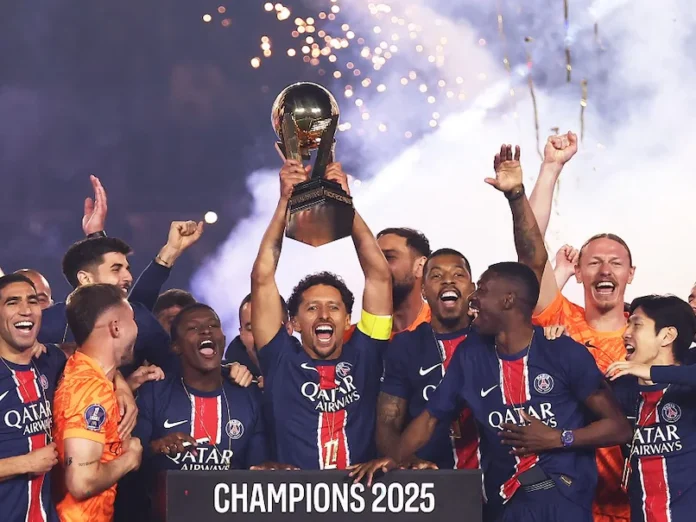
Paris Saint-Germain’s (PSG) progression to the Champions League final should be a proud moment for French football. Yet, while the Ligue 1 giants chase European glory against Inter Milan on May 31, the broader landscape of football in France remains deeply troubled.
The Ligue 1 season wrapped up this weekend with PSG already securing their fourth consecutive domestic title and poised to win the French Cup next Saturday, but their dominance masks a growing crisis in French club football.
PSG’s achievements continue to shine a rare positive light on a nation that has tasted international success — France has won two World Cups and reached two more finals in the past seven tournaments.
Yet, on the club stage, French teams have a disappointing record in continental competitions. Since Marseille’s 1993 European Cup triumph, no French club has claimed Europe’s top prize, and PSG now aim to become only the second.
This lack of success means France’s tally of European Cups remains on par with countries like Scotland and Romania, and even trails behind clubs from smaller footballing nations, such as Nottingham Forest from England.
The French football community, therefore, is unified in rallying behind PSG despite the widening gulf between the Paris club and the rest of Ligue 1.
“We are lucky to have a French team in the final,” said Nice coach Franck Haise. “I am not a Paris supporter. My club is Nice, but I am eager to see Paris win the final. I am French, as I was when Marseille won in 1993.”
Beyond PSG, the situation is bleak. Lyon, a club with seven French titles to their name, faces severe financial difficulties. Owned by Eagle Football, a company controlled by American businessman John Textor, Lyon recently reported debts exceeding 540 million euros ($603 million).
Their failure to qualify for next season’s Champions League has compounded concerns about the club’s future viability. Lyon has even been warned they risk demotion to Ligue 2 unless drastic financial measures are taken.
UEFA has also indicated the club may face sanctions that could prevent participation in European competitions if they fail to resolve their debt issues. In contrast, Marseille and Monaco are assured of Champions League football next season, underscoring the stark divide within French football.
Financial instability extends beyond individual clubs. Ligue 1’s domestic television rights deal remains a significant headache. A last-minute contract with streaming platform DAZN pays clubs around 400 million euros per year, far below the league’s target of one billion euros annually.
This falls short by a wide margin when compared to the Premier League’s domestic rights deal, which will generate approximately 2.02 billion euros per season from 2025 onwards.
Due to dissatisfaction with DAZN, Ligue 1 is now expected to terminate the deal early and instead launch its own broadcasting channel — but in the meantime, the financial future of most French clubs is uncertain.
This revenue instability threatens to widen the already massive gap between PSG, heavily backed by Qatar Sports Investments, and their domestic rivals.
“PSG have invested a lot of money and are years ahead of us in so many respects,” admitted Marseille coach Roberto De Zerbi. “But our ambition is still to be able to compete with them.”
As PSG prepares for the upcoming Club World Cup in the USA — where the winning team could pocket up to $125 million — Ligue 1’s other clubs can only hope that the intense schedule leaves the Parisians fatigued enough to level the playing field in the seasons ahead. Until then, French football’s domestic crisis is unlikely to ease, despite PSG’s continental ambitions.